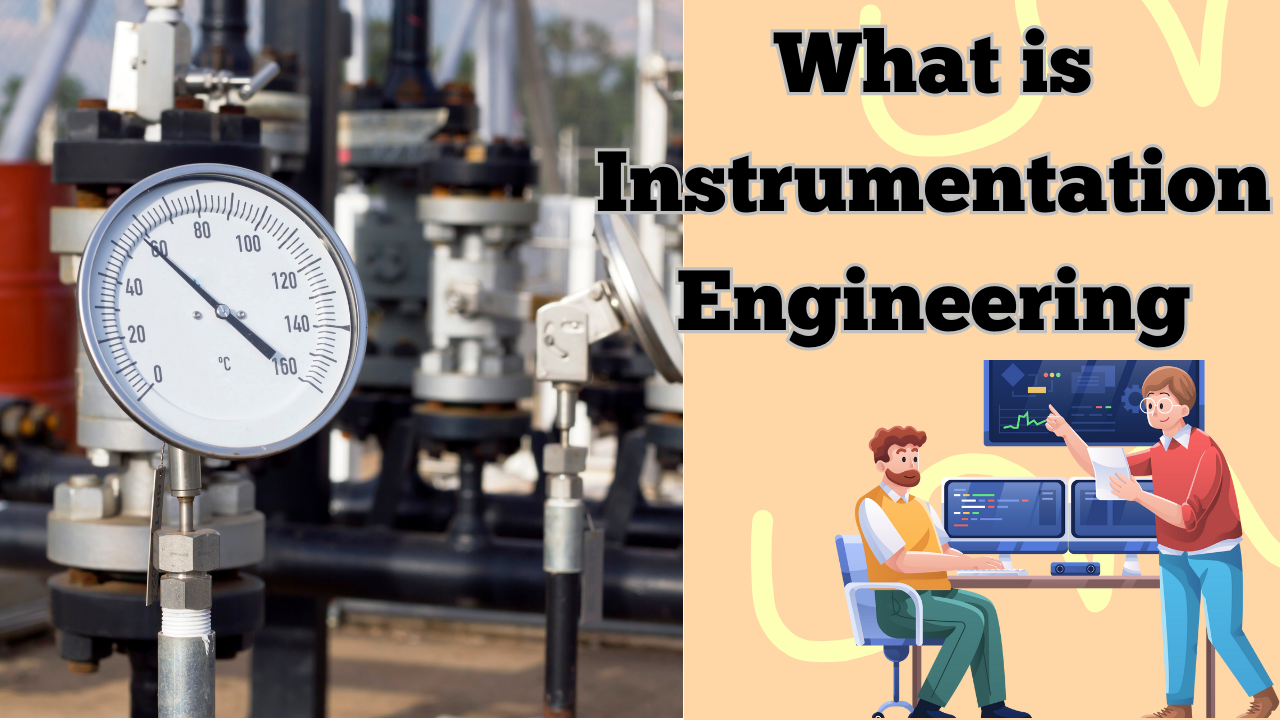Instrumentation engineering is a multidisciplinary field that harmonizes the principles of physics, electrical engineering, and control systems to develop instruments that measure, analyze, and control various physical phenomena. The essence of this discipline lies in its profound ability to enhance our understanding of the physical world through precise measurement and control mechanisms. As we delve into the various facets of instrumentation engineering, we uncover not only its crucial role in modern industries but also its promise to shift our perspective regarding technological advancement and empirical inquiry.
An essential aspect of instrumentation engineering is measurement science. Measurement serves as the foundation upon which this discipline builds its capabilities. Measurement science involves the establishment of procedures, techniques, and standards to quantifiably ascertain properties of matter and energy. Instrumentation engineers develop sophisticated devices, commonly referred to as sensors and transducers, which convert physical phenomena—such as temperature, pressure, and flow—into readable electrical signals. This transformation enables real-time monitoring and analysis, which is critical in sectors ranging from manufacturing to environmental science.
Moreover, the breadth of instrumentation engineering extends to control systems. Control engineering is instrumental to the automation of processes, where maintaining desired outputs despite variable inputs is paramount. Instrumentation engineers design feedback systems that utilize real-time data from sensors to make automatic adjustments, thus ensuring optimal performance and safety. The principles of feedback control allow for advancements in diverse applications, from autonomous vehicles to biomedical devices, facilitating innovations that enhance societal welfare.
At the intersection of measurement and control lies the burgeoning field of data analytics. As instrumentation systems generate copious amounts of data, the capability to interpret and act upon this data becomes increasingly critical. Instrumentation engineers are at the vanguard of developing algorithms and software solutions that parse through this information, unveiling patterns that inform decision-making processes. This analytical aspect not only augments traditional engineering practices but also fosters an environment in which data-driven insights propel industries toward unprecedented efficiency and innovation.
The breadth of instrumentation engineering also encompasses the domains of calibration and validation. Calibration is a rigorous process ensuring that instruments provide accurate measurements in accordance with established standards. This practice is vital in fields such as pharmaceuticals, where precise dosages can have profound implications. Validation, on the other hand, confirms that the outputs of instrumentation systems are reliable and fit for their intended applications. Together, these processes enhance the integrity of measurements, fostering trust in data and bolstering compliance with regulatory standards.
Furthermore, instrumentation engineering plays a pivotal role in the burgeoning fields of the Internet of Things (IoT) and smart technology. With the proliferation of interconnected devices, instrumentation engineers are tasked with developing instrumentation systems that seamlessly integrate into a network, allowing for enhanced monitoring and control of remote assets. This integration presents novel opportunities for efficiency, resource management, and data collection, underscoring a paradigm shift toward intelligent systems that adapt to user needs and external conditions.
Education in instrumentation engineering typically encompasses various subjects — including electrical circuits, signal processing, control theory, and computer programming. Such a comprehensive curriculum equips engineers with the knowledge to tackle complex challenges. Advanced instrumentation systems require an interdisciplinary approach, wherein engineers collaborate across sectors, contributing insights from physics, engineering, and data science. This collaboration sparks innovation and nurtures a dynamic environment where curiosity thrives, driving the continuous evolution of instrumentation technologies.
Consider the application of instrumentation engineering in the field of healthcare. Medical instrumentation engineers design devices that are pivotal in diagnostics and treatment, such as MRI machines, ultrasound devices, and biosensors. These technologies have revolutionized healthcare paradigms, enabling non-invasive monitoring and detailed analysis of patient conditions. The impact is profound; lives are saved, and treatment plans are optimized through the insights garnered from sophisticated instruments. This synergy between engineering and medicine exemplifies the transformative potential of instrumentation engineering.
Sustainability is also increasingly intertwined with instrumentation engineering. The demand for efficient and effective measuring systems fosters the development of technology that optimizes resource consumption and minimizes waste. For instance, in environmental monitoring, instruments measure pollutants, enabling regulatory bodies to ensure compliance and instigate interventions where necessary. By leveraging instrumentation engineering, society can cultivate a deeper understanding of ecological challenges and work collaboratively toward sustainable solutions.
In conclusion, instrumentation engineering embodies a complex tapestry woven from the threads of measurement science, control systems, data analytics, and interdisciplinary collaboration. The allure of this field lies in its transformative potential, presenting a shift in how we perceive and interact with the world around us. With the ever-evolving landscape of technology, the need for skilled instrumentation engineers becomes paramount. As we stand at the cusp of new frontiers in automation, sustainability, and healthcare, the promise that lies within instrumentation engineering invites us to explore further, propelling curiosity and innovation to new heights.










